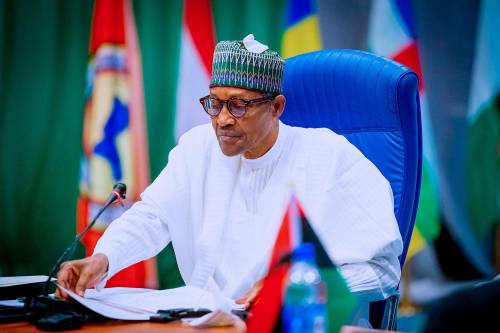The Presidency on Monday says President Muhammadu Buhari can’t be forced to sign the amended Electoral Bill into law.
The President had earlier declined assent to the bill, citing concerns over the recommendation of direct primaries for political parties.
He had said compulsory direct primary for political parties “violates the spirit of democracy”.
The clause was later removed by the senate and house of representatives and the lawmakers introduced a clause allowing political parties to elect their candidates using direct, indirect or consensus methods.
The revised bill was subsequently transmitted to the President on January 31.
In a statement issued on Friday, about twenty-six civil society organisations (CSOs) had said Buhari needed to sign the bill before February 22 if the date for the 2023 general election announced by the Independent National Electoral Commission (INEC) will stand.
“The bill, when signed, requires INEC to issue Notice of Election not later than 360 days before the day appointed for an election. Therefore, the President has to give assent to the bill on or before 22nd February 2022 if the dates announced for the 2023 elections are to be maintained,” the CSOs has stated.
“The delay in granting presidential assent to the Electoral Bill, 2022 will create legal uncertainties that threaten the integrity of the off-cycle elections in Ekiti, Osun, and the 2023 general election, which is 366 days away.
“The civil society community resolves to declare Tuesday, 22nd February 2022, as the National Day of Protest to demand immediate assent to the bill.”
Reacting, Femi Adesina, Special Adviser to the President on Media and Publicity, said Buhari still had more days to decide on signing the amended bill into law.
He also tackled the groups accusing the President of being reluctant in assenting to the controversial bill.
The statement said, “Some interest groups are cashing in on what they consider a delay in the signing of the Electoral Bill into law by the President to foment civil disorder and muddy the waters.
“One can just pity their ignorance of Constitutional requirements, as the President has a window of 30 days within which to sign the Bill, or decline assent, after it had been transmitted to him by the National Assembly.
“It is on record that the amended Bill was sent to the Presidency on January 31, 2022, which means that the Executive could do due diligence on it till March 1, as prescribed by the Constitution.
“A proposed legislation that has to do with the electoral fortunes of the country needs to be thoroughly scrutinised, and be made as near-perfect as possible.
“Those playing cheap politics with it are, therefore, encouraged to hold their peace, knowing that the right thing will be done within the lawful time.”







